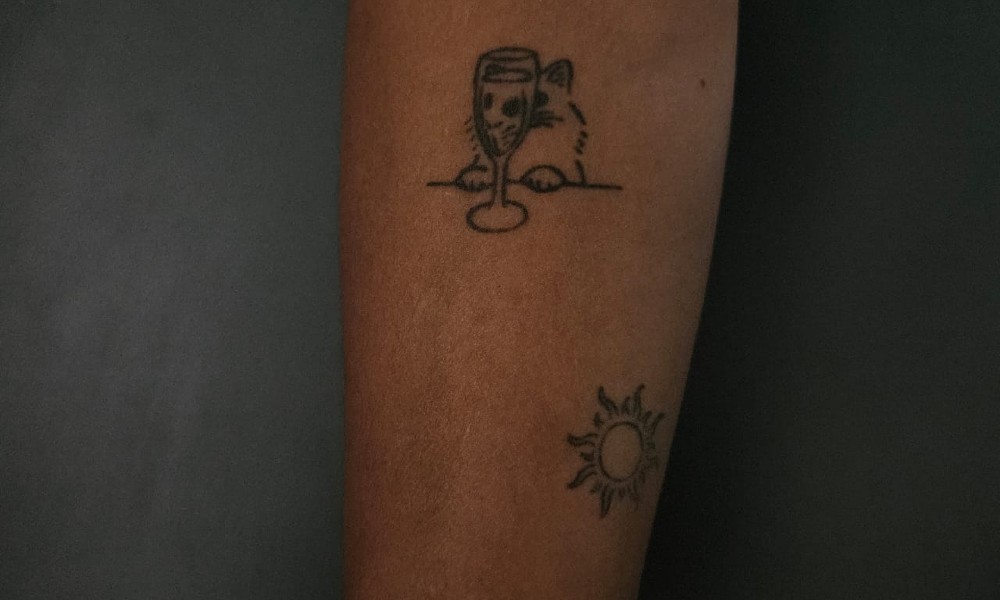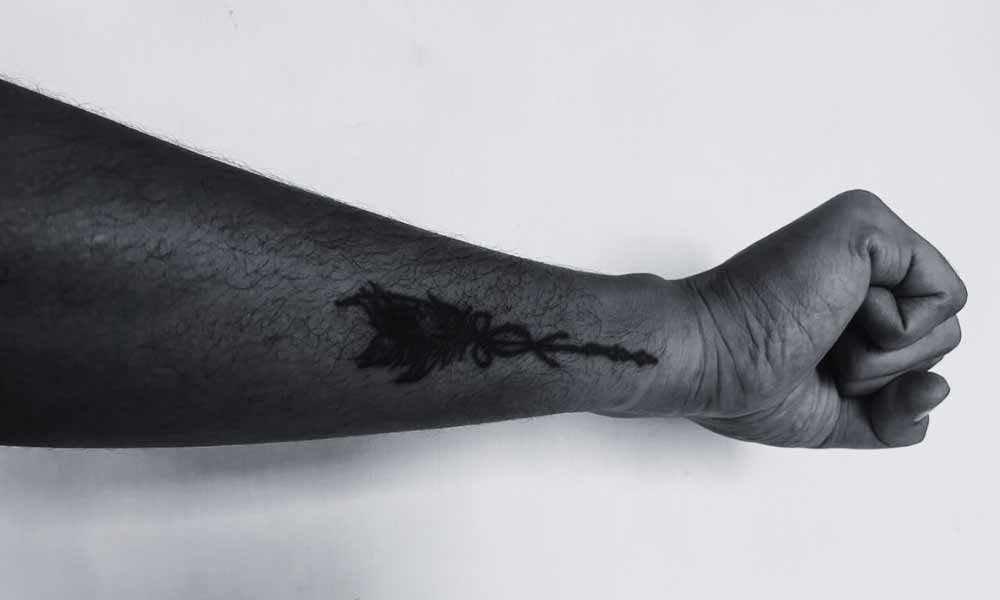Dermatologists say that people need to educate themselves about the process before getting tattoos done.
Intrigued by the offer of Rs.300 per square inch for a tattoo in Bangalore, Jaya (name changed), a college going student walked in a tattoo studio in SG Palya, Madiwala. The Tattoo artist did not ask her any questions or talk about the process before asking her to sit down and start the session. Today, she is undergoing treatment for rashes.
Jaya said, “If it weren’t for such a tempting offer, I wouldn’t have gone to that studio. I am now under treatment prescribed with ointments and antibiotics since I have developed rashes.” She added, “I wasn’t asked about anything except my name and age, I noticed that a lot of others who sat there were entirely clueless as they kept asking questions to their artist during the procedure.”

Dr. Akansha. G, a dermatologist said, “Tattoos are nothing but ink or coloured dye being injected into the sub-dermis layer of the skin. In order to do so, needles and equipment must be clean and sterilized, which I doubt are in the case of many tattoo studios. I see at least four to five cases a month, depending on the kind of rash or infection.”
She also added, “It’s a hand-held machine that we are talking about, gloves need to be sterilized and made compulsory. To my knowledge, some patients come up to me saying that they did not notice the artist even wearing a pair of gloves which is highly concerning.”
Mohan, a tattoo artist who is a part of the Karnataka state tattoo artists association said, “All people that are interested in starting a studio do so because of the art. Basic training such as knowing why the person wants to be inked and what they have in mind gives perspective to artists such that a decision is made into a permanent design on their skin.” He added, “We ensure basic cleanliness and equipment sterilization. In the end, an infection can be fatal too, as tattoo artists we ought to be careful and considerate.”

Girish, a tattoo artist from Brahma Tattoo studio on Church Street said, “There are over 3000 tattoo artists in Bangalore today. Given the exposure, artists must have the basic knowledge of safety protocols to avoid causing infections like hepatitis through pathogens.”
He added, “I have heard offers like Rs. 150 per square inch being given out in places like Shivajinagar and it made me curious. I visited one of those places. The ink was of low quality and only five to six needles were used for the whole week, which meant that they were used on multiple people.”
Girish said that a good tattoo studio/parlour looks into the most minute details such as needles, the kind of ink, sheets, cotton, and sterilization equipment. He added, “People get tricked by offers which are inexpensive and end up with several issues.”

Jaya said that she couldn’t continue with the whole session as she felt irritation and burning while being inked. She said, “The doctor that I had gone to just two days after this session asked me if the artist had talked about the procedure and had explained to me why asking about the person’s history is very important.” She added, “My doctor said that in case a person has any existing skin issues or even a slight fever or cold, they must avoid getting a tattoo as it could cause high risk infections.”
Manish, a tattoo artist said, “We are trained to ask information about the person,about the reason why they would like to get a tattoo, if they are under any medication, how long has it been since they had any kind of vaccination and so on. It is standard protocol.” He added, “A detailed explanation must be given to the person such that they feel comfortable and are aware above all. A consultation session is mandatory in most places which I also find very helpful if I were taking the decision to get inked such that I know what I am getting and would be fully knowing of the risks.”
Manish said, “It all comes down to the code of ethics. Tattoo studios are allowed to be put up with just certificates of experience and budget plans. An authority like Bruhat Bengaluru Mahanagara Palike (BBMP) should look into safety and security in order to avoid cases that lead to health-related risks.”
BBMP is in charge of licensing the space, building or floor in any complex such that a tattoo parlour or studio can be set up and not beyond that. Dr. Priya, a public health expert said, “Any form of procedure requires consent, a tattoo is one’s personal decision and the artist must be aware of the person’s will and history as a basic necessity like any other medical procedure such that safety is ensured.”
Rashi, who has a few tattoos, said that her experiences had been good so far and it is only because she did her research. However, she had known and heard of unsafe procedures. She placed emphasis on transparency which enabled trust with the artist.
Leena. S, an intern in psychology said, “I love tattoos, I have many. However, I have had my fair share of bad experiences. I understand why people don’t think through before getting a tattoo as I have been in the same mindset of impulsive and reckless-decision making when it comes to getting something new done to myself.” She added, “One of my tattoos had developed a horrible rash, I learnt not to get a tattoo from a random place and to do my research before.”
Dr. Akansha said, “A lot of patients come up with rashes and terrible infections around the area as they do not take up post dermal inking care. People who have open wounds are also at risk of infection and deep scarring of the subcutaneous layer (the second layer after the epidermis) of their skin.”
Rahul, an IT professional talked about his experience while visiting a tattoo parlour that gave him a terrible fever. On visiting a doctor, he gained perspective on how the potential cause of the high fever could have been due to open wounds in and around the inked area.
Dr. Shirshra, a dermatologist, said, “A laser removal procedure for tattoo takes place for two reasons. It can be due to a change in mind of a tattoo already done or due to an infection.” Rashes and infections are bound to happen if unclean equipment is used. Laser treatment cannot be the answer to reverse the tattoo decision at all times as sometimes the infection is so harsh that no radiation can help. “It takes over three months to heal. Creams and ointments can only help reduce inflammation,” she said.




